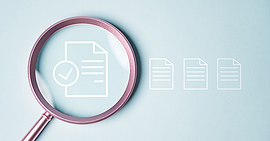Financial institutions’ reporting obligations to tax authorities
05/01/2022
In a recent post we discussed the new limit on cash payments, which aims to combat the underground economy and tax fraud. This is a new addition to other cash-related measures that you need to be aware of.
All individuals, whether acting on their own behalf or on behalf of third parties, are required to declare the following movements in form S1Abre en ventana nueva:
- - all cross-border movements of cash and cash equivalents into/out of Spain amounting to €10,000 or more (or the foreign currency equivalent).
- - movements within Spain of cash and cash equivalents of €100,000 or more (or the foreign currency equivalent).
Financial institutions also play an important role in combating money laundering and fraud. Indeed, they are subject to regulations to that effect, which we have covered in another post that you can find here.
With regards to cash, financial institutions are required to report certain movements in their customers’ accounts to the tax authorities:
- - cash transactions, both deposits and withdrawals, of more than €3,000.
- - the cashing of any cheque, bill, commercial paper, etc., of more than €3,000.
Likewise, the regulations require that such institutions implement enhanced due diligence measures for any money remittance amounting to (cumulatively or individually) more than €3,000, and to identify all individuals who conduct transactions of over €1,000 with them.
The General Tax Law obliges financial institutions to provide to the tax authorities all kinds of information with tax implications relating to their economic, professional and financial relationships with other persons. To comply with those requirements, institutions can establish due diligence measures beyond those expressly set out in the regulations and can ask their customers for any information that they consider appropriate.
Just because the tax authorities are provided with information on these movements does not mean that an investigation will be undertaken. That only happens where there is suspicion of unlawful conduct. In that case, the institution will be contacted and asked to provide further information, and ultimately the user should the authority see fit. It is therefore a good idea to keep receipts and documentation relating to any such movements.



